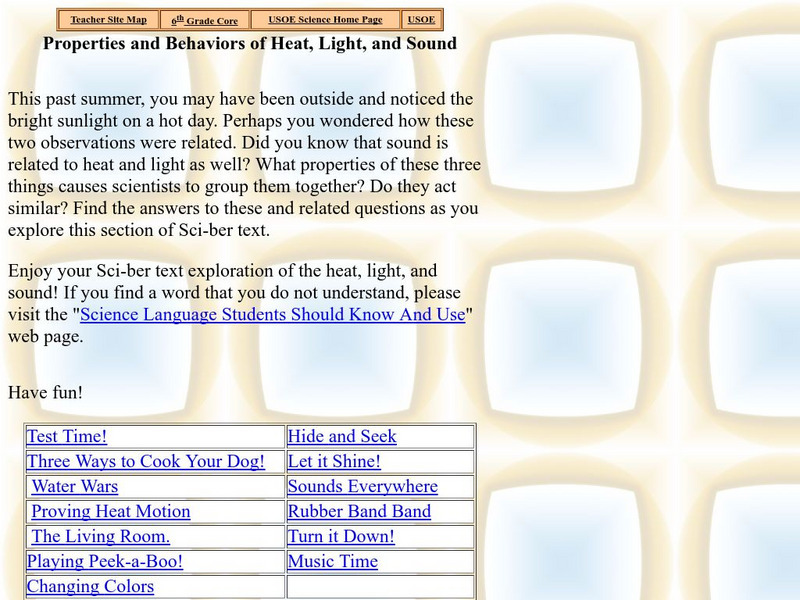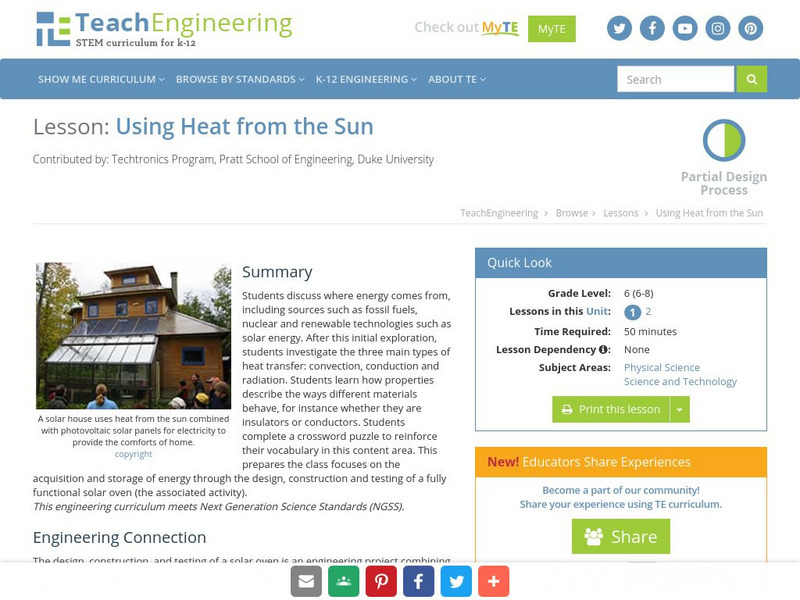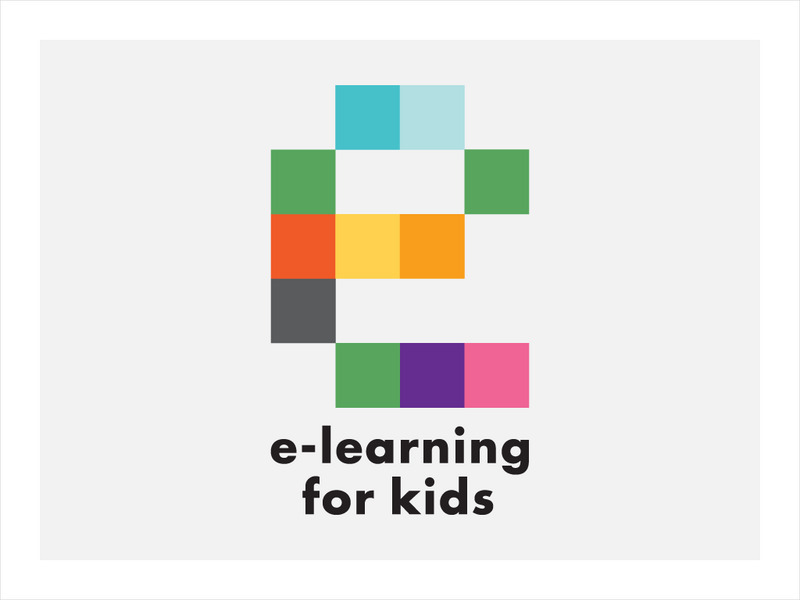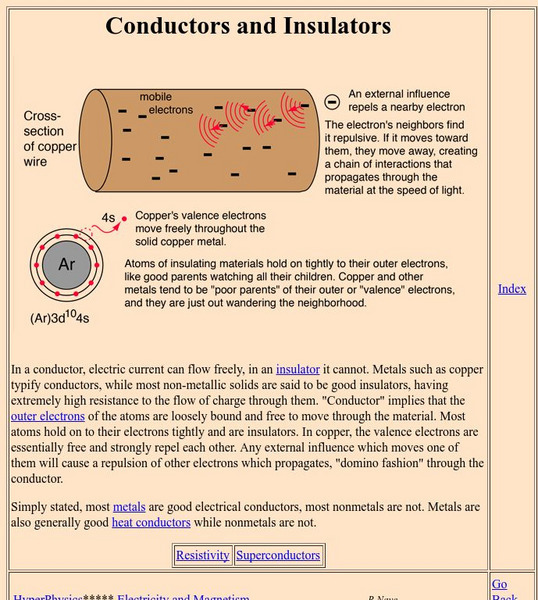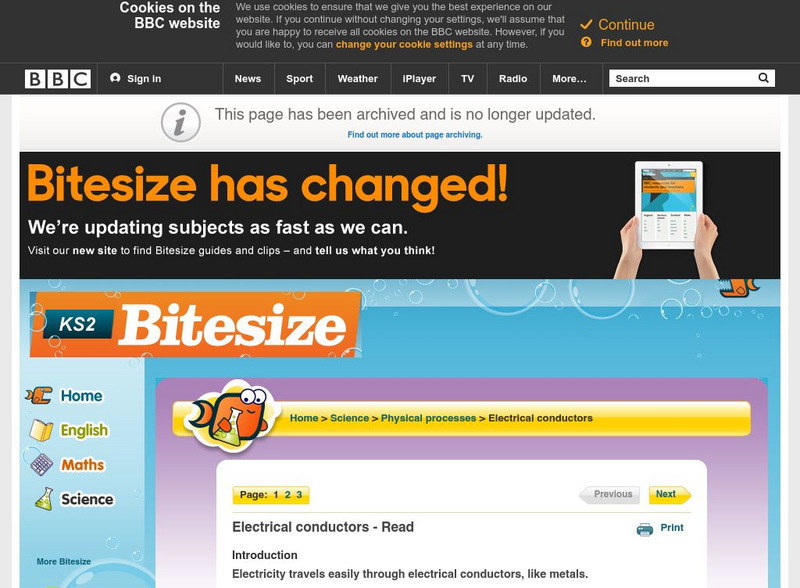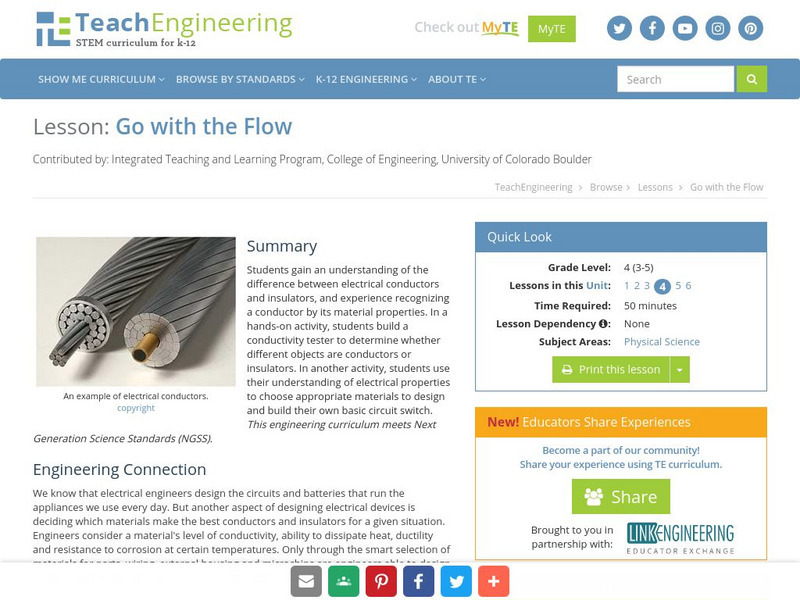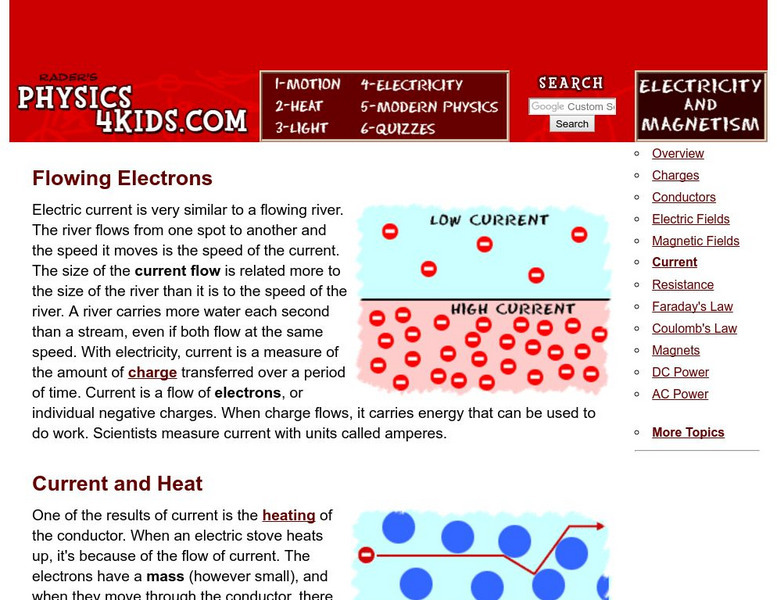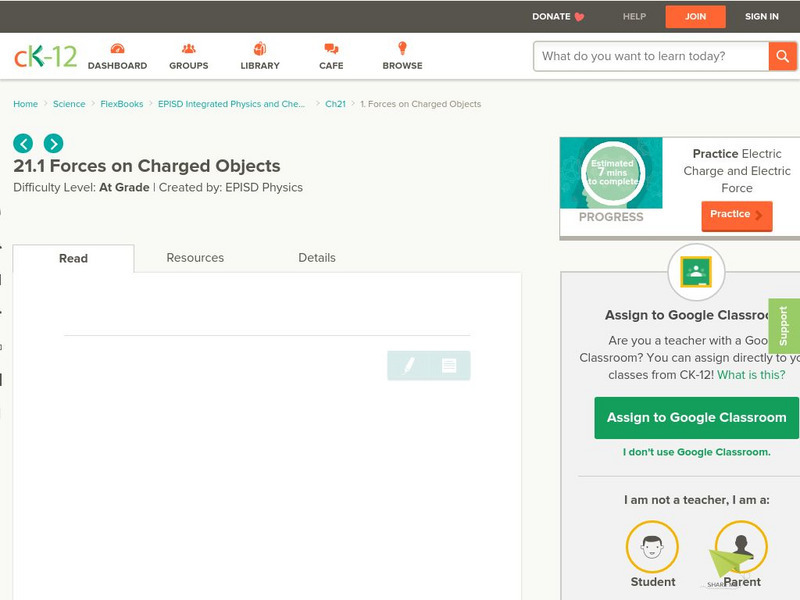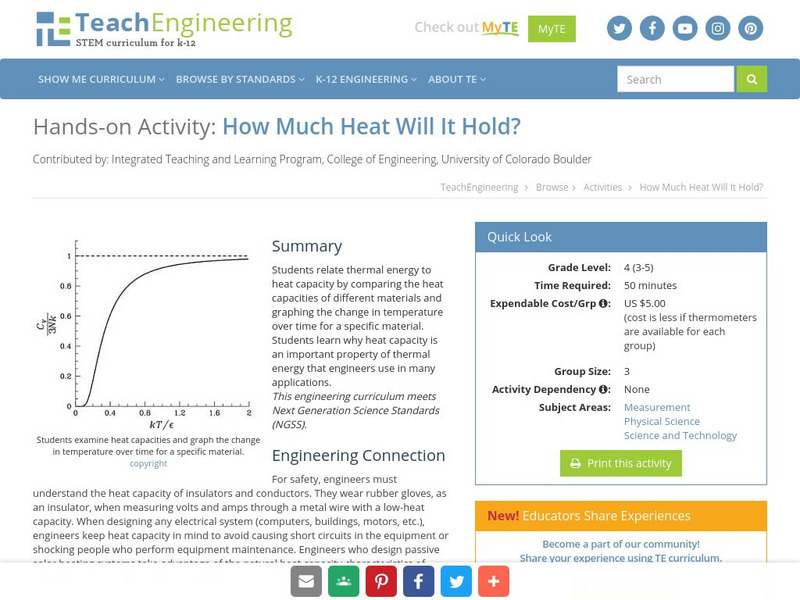BBC
Bbc Schools: Ks2 Bitesize: Science: Physical Processes: Electrical Conductors
Find out which material will save Steve from getting shocked by the electric eels. Following the activity, read more about electrical conductors, and then take a quick quiz to check for understanding.
American Chemical Society
Middle School Chemistry: Heat, Temperature, and Conduction
Students observe, describe, and draw a model on the molecular level, showing how energy is transferred from one substance to another through conduction.
Canada Science and Technology Museum
Canada Science and Technology Museum: Background Information for Electricity
The Canada Science and Technology Museum answers some of the most common questions about electricity. For example, get the definition of electricity, the difference between alternating and direct currents, and learn how a fuse works.
Utah State Office of Education
Utah Science: Properties and Behaviors of Heat, Light and Sound
How can scientists lump heat, light and sound together when investigating properties and behaviors? This learning module will address that question through a series of activities.
Ducksters
Ducksters: Physics for Kids: Electrical Conductors and Insulators
Kids learn about electrical conductors and insulators in the science of electricity and physics including materials, superconductors, and semiconductors.
CK-12 Foundation
Ck 12: Fourth Grade Science: Physical Science: Electric Current
[Free Registration/Login may be required to access all resource tools.] Defines electric current and relates electric current to different materials (insulators and conductors).
ClassFlow
Class Flow: Turning on the Lights
[Free Registration/Login Required] In this lesson students learn the parts of a circuit, build series and parallel circuits, learn about insulators and conductors, and more in this interactive multimedia flipchart.
CK-12 Foundation
Ck 12: Thermal Conductors and Insulators
[Free Registration/Login may be required to access all resource tools.] Descriptions and examples of thermal conductors and insulators are discussed and shown.
Science4Fun
Science4 Fun: Conductors and Insulators
Discover what materials make good conductors and insulators.
TeachEngineering
Teach Engineering: Using Heat From the Sun
In this lesson plan, students will first discuss where energy comes from, including sources such as fossil fuels, nuclear, and such renewable technologies as solar. After this initial exploration, students will investigate the three main...
ClassFlow
Class Flow: Circuit Conductors
[Free Registration/Login Required] This unit builds on children's previous practical experience of making circuits and extends their understanding of circuits, conductors and insulators and the need for a complete circuit in order for a...
E-learning for Kids
E Learning for Kids: Science Underwater City: What Are Good and Poor Conductors of Heat?
John and Jessi are going underwater, and they need to stay warm. Help them learn about conductors of heat so they can stay warm.
Science Education Resource Center at Carleton College
Serc: Elements Metals, Nonmetals and Metalloids
Students investigate several properties of the given elements and decide whether each element is a metal, non-metal, or a metalloid.
Georgia State University
Georgia State University: Hyper Physics: Conductors and Insulators
This site from Georgia State University provides information on the distinction between conductors and insulators. Factors contributing to the insulating ability of materials are discussed.
BBC
Bbc Schools: Ks2 Bitesize: Science: Physical Processes: Electrical Conductors
A review of electrical conductors and insulators, with diagrams, activities, and quiz questions.
Other
The Blobz Guide to Electric Circuits
An exciting interactive site of games, activities, information, and quizzes about electric circuits. You'll learn what makes circuits work, all about conductors and insulators, switches, changing circuits, and circuit diagrams. Learning...
ArtsNow
Arts Now Learning: Using Dance to Explore Electricity [Pdf]
After analyzing examples of conductors and insulators, 5th graders will work in small groups to craft a dance that depicts an electrical current and how it is affected by a conductor or insulator. Students will present their dances to...
TeachEngineering
Teach Engineering: Go With the Flow
Students gain an understanding of the difference between electrical conductors and insulators, and experience recognizing a conductor by its material properties. In a hands-on activity, students build a conductivity tester to determine...
Physics4kids
Physics4 Kids: Electricity and Magnetism: Current
Explains electric current, how it produces heat, and the difference between a direct current and an alternating current.
CK-12 Foundation
Ck 12: Forces on Charged Objects
[Free Registration/Login may be required to access all resource tools.] Students learn which subatomic particles contribute to static electricity, and determine the charge of an object based on what particles it has gained or lost.
South Carolina Educational Television
Know It All: Understanding Electricity | Nasa Online
If you want to understand electricity, you first need to know a little about matter, atoms and electrons.
TeachEngineering
Teach Engineering: How Much Heat Will It Hold?
Students relate thermal energy to heat capacity by comparing the heat capacities of different materials and graphing the change in temperature over time for a specific material. Students learn why heat capacity is an important property...
CK-12 Foundation
Ck 12: Physics Simulation: Power Lines
[Free Registration/Login Required] Learn about the relationship between electric potential, current, and resistance in the context of high-voltage AC power lines using this interactive simulation. A PDF worksheet and a video tutorial are...
TeachEngineering
Teach Engineering: Conductivity
Students make a simple conductivity tester using a battery and light bulb. They learn the difference between conductors and insulators of electrical energy as they test a variety of materials for their ability to conduct electricity.


